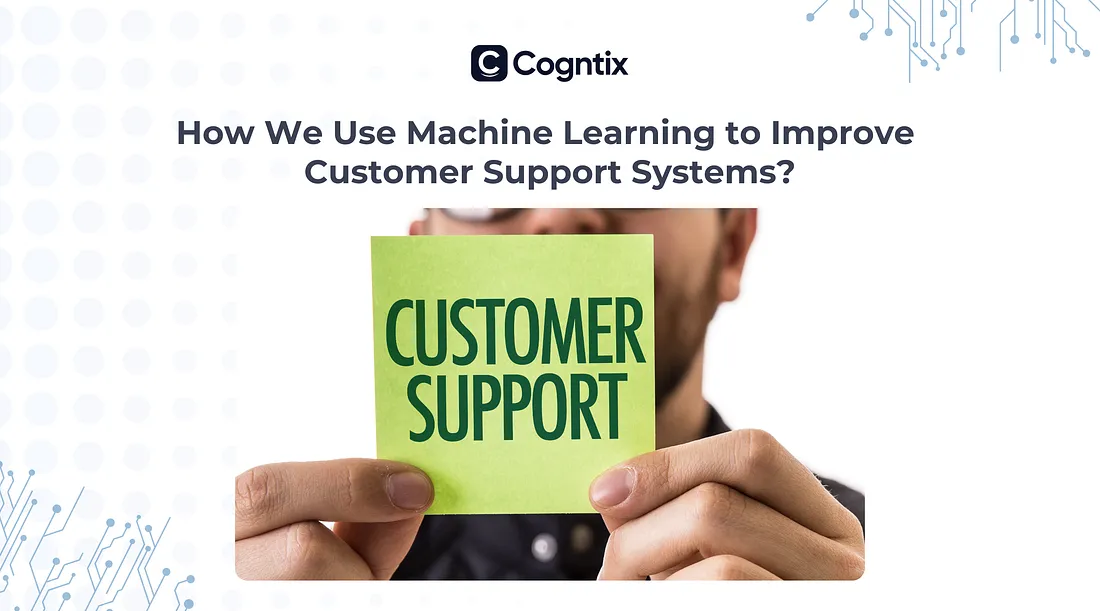Customer support is broken. We’ve all been there, endless wait times, generic responses, and frustrating chatbot loops that leave users angrier than when they started. Businesses want to provide great support, but as they scale, their teams get overwhelmed, tickets pile up, and response times slow down.
We saw this problem firsthand when working with companies struggling to handle thousands of daily support requests. Their systems weren’t built to handle high volumes, and their human agents were drowning in repetitive inquiries.
So, we built a smarter system, one that doesn’t just automate responses but actually learns, adapts, and improves over time.
The Real Problem with Customer Support Systems
Most support systems are reactive, not proactive. They rely on outdated rule-based automation that follows rigid scripts.
Customers wait too long for answers.
Bots give generic, unhelpful replies.
Humans handle repetitive tickets instead of complex issues.
Businesses fail to learn from past support interactions.
Support shouldn’t be a bottleneck, it should be a seamless part of the customer experience.
How We Built a Smarter Support System with Machine Learning?
At Cogntix, we don’t believe in generic AI chatbots that frustrate users. We built a machine learning powered support system that actually makes customer interactions faster, smarter, and more effective.
1. Instant Answers with AI-Powered Chatbots
Most chatbots follow pre-written scripts, which makes them useless when customers ask anything outside the template. We fixed that.
Our AI understands context, intent, and sentiment, not just keywords.
Instead of robotic replies, the bot pulls answers from real past interactions and knowledge bases to provide useful responses.
If the bot can’t resolve an issue, it instantly connects the user to a human agent with all relevant details, not repeating the problem.
2. Predicting Issues Before They Happen
Instead of waiting for customers to report problems, we identify pain points before they escalate.
Our ML models detect trends, like a spike in login issues or payment failures, before they flood support.
If an issue is affecting multiple users, the system automatically notifies the support team and even sends preemptive fixes or updates to users.
When customers get answers before they even ask, support teams focus on real problems instead of repetitive questions.
3. Personalized Support for Every User
Most support systems treat every customer the same, but not all users have the same needs.
The system remembers past interactions and personalizes support responses.
High-value customers or urgent issues get escalated automatically to the right agents.
If a user struggles with onboarding, the AI suggests personalized guides or tutorials to prevent future issues.
Instead of a one-size-fits-all approach, we create support experiences that feel personal and helpful.
4. Automated Sentiment Analysis for Better Interactions
AI doesn’t just answer questions, it understands emotions.
The system analyzes tone, frustration levels, and urgency in customer messages.
If a user is upset, the AI switches to a more empathetic approach instead of giving robotic answers.
If a message shows extreme frustration, the system prioritizes immediate human intervention instead of wasting time with automated replies.
This ensures that users don’t just get answers, they get responses that feel human.
Customer support shouldn’t be a burden, for your team or your users. By integrating machine learning, we’ve transformed support systems from reactive problem-solving to proactive customer care.
Faster responses, fewer repetitive tickets, and AI that actually learns and improves over time.
At Cogntix, we build support systems that don’t just answer questions, they enhance the customer experience and drive business growth. If your support team is overwhelmed and your customers are frustrated, it’s time for a smarter solution. Let’s build a support system that works for you, not against you. Contact us today.
Written by: Gayathri Priya Krishnaram (Digital Content Writer at Cogntix)




